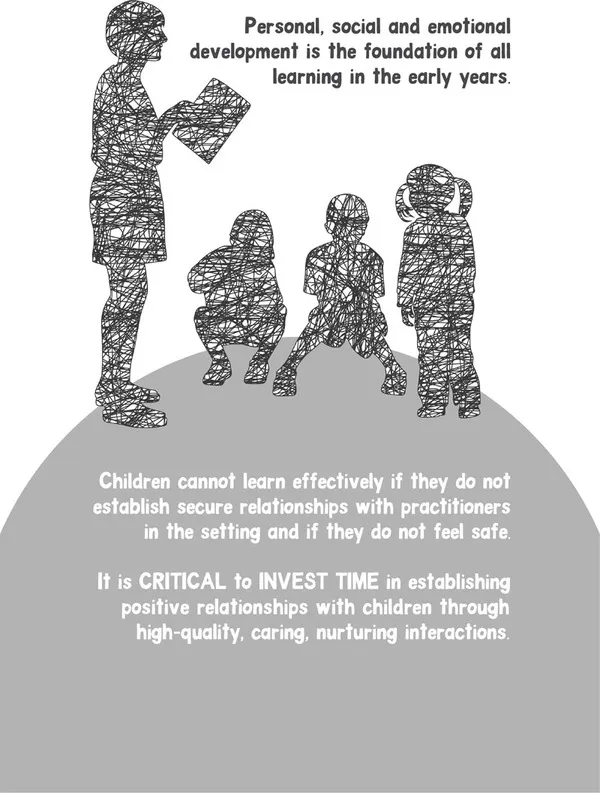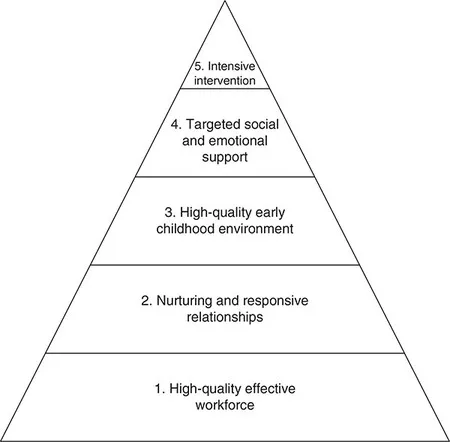
eBook - ePub
Evidence Based Primary Teaching
Jonathan Glazzard, Samuel Stones
This is a test
Share book
- 136 pages
- English
- ePUB (mobile friendly)
- Available on iOS & Android
eBook - ePub
Evidence Based Primary Teaching
Jonathan Glazzard, Samuel Stones
Book details
Book preview
Table of contents
Citations
About This Book
New and trainee teacher?s need to know that the strategies they are implementing are underpinned by robust research evidence. This book gives you the key knowledge, supports you to develop critical thinking skills, and helps you understand some of the wider contexts of education and teaching.
A comprehensive guide to support, challenge and develop you as a trainee teachers? in understanding evidence-based teaching in primary schools.
Frequently asked questions
How do I cancel my subscription?
Can/how do I download books?
At the moment all of our mobile-responsive ePub books are available to download via the app. Most of our PDFs are also available to download and we're working on making the final remaining ones downloadable now. Learn more here.
What is the difference between the pricing plans?
Both plans give you full access to the library and all of Perlego’s features. The only differences are the price and subscription period: With the annual plan you’ll save around 30% compared to 12 months on the monthly plan.
What is Perlego?
We are an online textbook subscription service, where you can get access to an entire online library for less than the price of a single book per month. With over 1 million books across 1000+ topics, we’ve got you covered! Learn more here.
Do you support text-to-speech?
Look out for the read-aloud symbol on your next book to see if you can listen to it. The read-aloud tool reads text aloud for you, highlighting the text as it is being read. You can pause it, speed it up and slow it down. Learn more here.
Is Evidence Based Primary Teaching an online PDF/ePUB?
Yes, you can access Evidence Based Primary Teaching by Jonathan Glazzard, Samuel Stones in PDF and/or ePUB format, as well as other popular books in Bildung & Grundschulbildung. We have over one million books available in our catalogue for you to explore.
Information
1 Early years pedagogy
In this chapter
This chapter introduces you to the key research on effective pedagogy in the early years. It emphasises the importance of play-based learning, practitioner intervention in children’s play and the importance of balancing child-initiated play with adult-directed learning. It argues that the ‘schoolification’ of early years practice is potentially damaging because children may miss out on aspects of learning that are critical to securing long-term academic outcomes. Effective practice is illustrated through case studies.
Key research
Seminal research in the early years concludes:
- Child-initiated play, combined with the provision of teacher-initiated group work, is the most effective vehicle for learning.
- Practitioner intervention in children’s freely chosen play is an effective strategy for providing intellectual challenge. Weisberg et al. (2013) refer to this strategy as ‘guided play’. Guided play is neither direct teaching nor free play, but it sits between these two pedagogical approaches.
- The most effective pedagogy combines both ‘teaching’ and the provision of freely chosen yet potentially instructive play activities.
- The use of ‘sustained shared thinking’ was observed in settings where children made the most progress.
- The modelling skills or appropriate behaviour by adults were often combined with sustained periods of shared thinking in effective settings.
- Open-ended questioning and modelling were also associated with better cognitive achievement.
- Effective pedagogy for young children is less formal than for primary school.
- The most effective settings adopted discipline/behaviour policies in which staff supported children in rationalising and talking through their conflicts.
(Sylva et al., 2004)
Goswami and Bryant (2007) report evidence from neuroscience which has shown that learning depends on neural networking across visual, auditory and kinaesthetic brain regions. These findings indicate that opportunities for multisensory, active learning are critical to promoting academic and social outcomes for children in the early years.
Research also demonstrates that children who enter school with poorly developed speech and language are at high risk of literacy difficulties (Snowling et al., 2011). The focus on supporting children’s communication and language development is therefore crucial in the early years, particularly for children who enter early years settings with underdeveloped skills in this domain.
The importance of developing children’s social and emotional regulation skills and promoting a positive sense of self in the early years has been identified by researchers. Developing these aspects supports positive longer-term outcomes (Goodman et al., 2015).
Researchers have also identified the importance of developing executive functioning skills in the early years to support long-term attainment. These include:
- Cognitive flexibility. The ability to switch perspectives.
- Inhibitory control. The ability to stay focused despite distraction, to have selective focused attention, and to stay on task.
- Working memory. The ability to hold information in the mind, mentally work with it, make sense of what unfolds over time, link learning, reason, remember multiple instructions in sequence, and follow them step by step in the correct order.
(Diamond, 2013)
The research suggests that a combination of play-based learning combined with teacher-directed learning is essential to support children’s development. Limiting exposure to play will restrict opportunities to develop children’s social and emotional regulation skills and their executive functioning skills. In addition, restricted opportunities for children to engage in play will limit opportunities for sustained shared thinking and exposure to language and vocabulary.
Key policy
In England, at the policy level, there is an assumption that the reception year at the end of the early years foundation stage should prepare children for the national curriculum, and should therefore become increasingly formal. In England in recent years, there has been an increasing prominence of a school readiness agenda and the accompanying ‘schoolification’ of early years pedagogy. Policy emphasises a pedagogy that promotes school readiness in the final year of the early years foundation stage. This is associated with a more formal and restricted curriculum that does not align with the principles of effective early years pedagogy. This approach effectively restricts exposure to a broad, rich, play-based curriculum in the early years, which is counterproductive to long-term outcomes.
The controversial Ofsted publication Bold Beginnings reflects the promotion of a school readiness agenda towards the end of the early years foundation stage in England. Key recommendations from this report include the following:
- Make sure that the teaching of reading, including systematic synthetic phonics, is the core purpose of the reception year.
- Attach greater importance to the teaching of numbers.
- Ensure that when children are learning to write, resources are suitable for their stage of development and that they are taught correct pencil grip and how to sit correctly at a table.
- Devote sufficient time each day to the direct teaching of reading, writing and mathematics.
(Ofsted, 2017, p7)
The emphasis in this report on the teaching of mathematics and literacy skills may result in a formal curriculum in the early years by limiting children’s exposure to play. In addition, it can result in communication and language as well as personal and physical development being marginalised, despite the fact that development in these areas is critical to securing good academic outcomes. It is essential that children in the early years are provided with learning opportunities that are developmentally appropriate. For example, children’s writing skills may be impeded because they have underdeveloped motor skills. These children may require a motor skills intervention as a prerequisite to holding a pencil. Exposure to spoken language and vocabulary underpins literacy development. A stimulating, high-quality play-based curriculum will immerse children in language and support subsequent development in literacy. If children’s development is rushed, the underpinning foundations may not be in place to secure positive long-term outcomes.
Balancing pedagogical approaches
The research cited above suggests that children in the early years need a variety of pedagogical approaches. These include child-initiated play and adult-initiated interactions that are more typically associated with the word ‘teaching’. In effective settings, the balance of who initiates the activities (i.e. children or adults) should be roughly equal (Sylva et al., 2004). Adult intervention in child-initiated play is an effective strategy that provides children with intellectual challenge. Adults can intervene in children’s play to model skills, behaviour and language, or they can intervene to promote thinking through the use of high-quality open-ended questioning. Adult intervention in play can support children to operate at a higher level of development but it requires a high degree of practitioner skill. It is less effective when adults intervene and effectively close down children’s play. A skilled practitioner can intervene and still allow the child to lead the play rather than imposing their own agenda on the play.
The importance of personal, social and emotional development
Personal, social and emotional development is the foundation of all learning in the early years. Children cannot learn effectively if they do not establish secure relationships with practitioners in the setting and if they do not feel safe. It is critical to invest time in establishing positive relationships with children through high-quality caring, nurturing interactions.
Children do not necessarily arrive in the setting with good social and emotional regulation skills. A play-based pedagogy in the early years supports the development of these skills because it enables children to interact with others, and to do this effectively they need to learn how to socially interact, how to behave and how to regulate their feelings.

Positive lifetime outcomes are dependent upon a balance of cognitive, social and emotional skills during childhood (OECD, 2015). In addition, research has shown that developing emotional skills along with social skills correlates positively with academic achievement (Durlak et al., 2011; Gutman and Schoon, 2013). Many researchers now agree that emotional development plays a critical role in children’s overall well-being and their capacity to form and sustain relationships across the life course (Bowlby, 1988; Denham et al., 2015; Dowling, 2010; Gerhardt, 2014; Thompson and Lagattuta, 2006).
The pyramid model provides a conceptual framework for supporting young children’s social and emotional development. We have represented it in Figure 1.1.

Figure 1.1
Center on the Social and Emotional Foundations for Early Learning (CSEFEL) (http://csefel.vanderbilt.edu/csefelindex.html)
The model is based on systematic research that emphasises the importance of the aspects shown on the model to support children’s emotional development. The model identifies universal practices that all children need (1, 2, 3). Additionally, some children may need specific targeted social and emotional interventions (4). Finally, a small minority of children may need highly personalised individual social and emotional interventions (5).
Executive functioning
Executive functioning skills support children to persist with activities and to process multiple instructions at the same time. Practitioners can support the development of these skills by gradually extending the number of instructions they give to children. In addition, instructions can be presented visually so that children have a visual reminder of what they need to do next. Practitioners can intervene in children’s play to model the skill of perseverance.